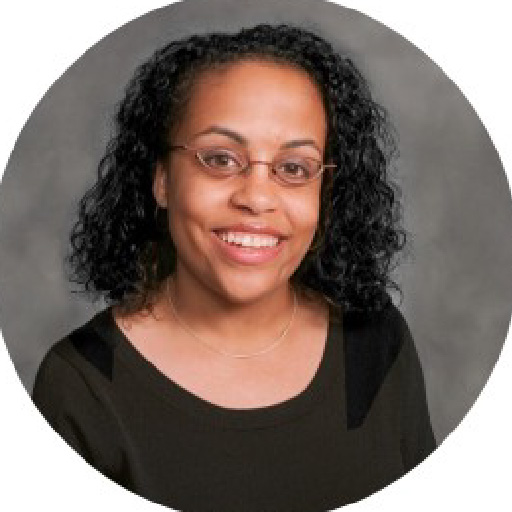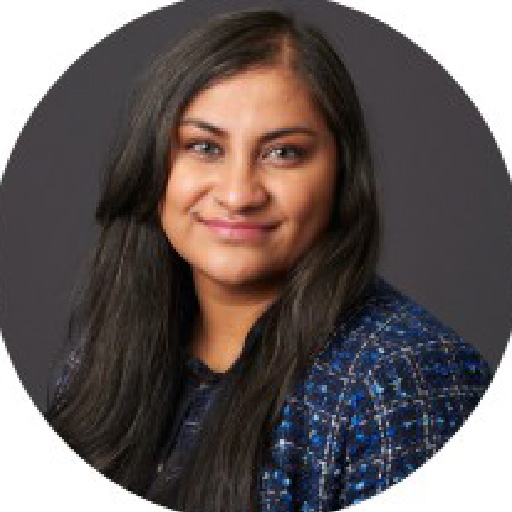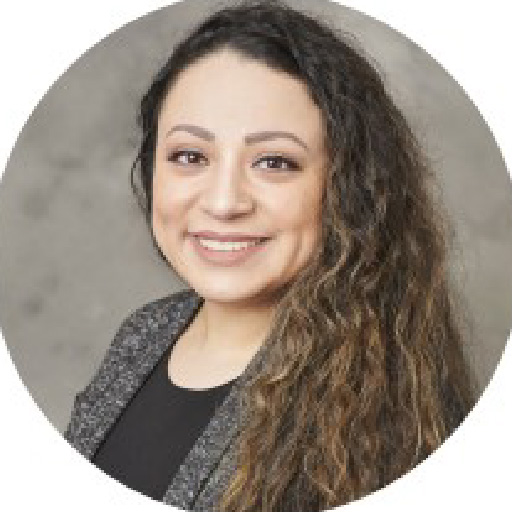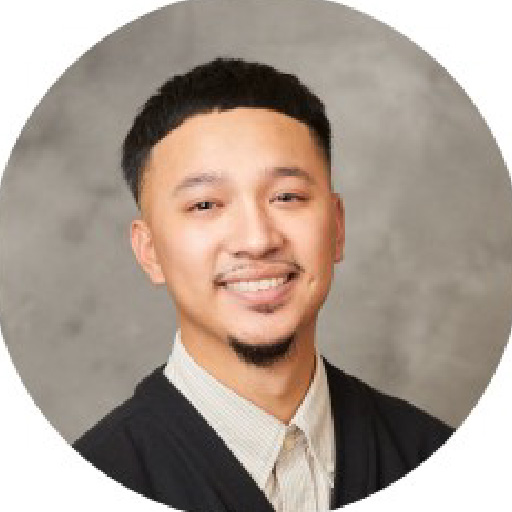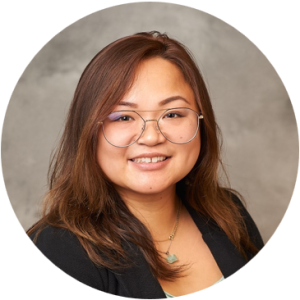Health Equity
Health Equity at PacMed
Good health is not equally available to everyone. Past and present prejudice and institutions have cut many off from what it takes to stay healthy in our society, such as financial stability, health insurance and access to healthy food, neighborhoods, doctors and more.
At PacMed, we push for equity in health care by acknowledging the barriers to preventive screenings, treatments and health outcomes that affect many racial, social, economic and ethnic groups—and we work harder to deliver our care across these barriers.
We believe that our collective efforts can help bring good health within everyone’s reach. Addressing health equity is core to our mission to provide “Simply the right care.”
Meet the Team
Our Health Equity team members have strong backgrounds in social work, clinical pharmacology and community navigation—and a demonstrated track record and passion for caring for the most vulnerable in our communities.
This team works closely with patients’ personal PacMed primary care doctors to tailor interventions and help ensure access to care for improved outcomes. They communicate directly with patients and meet them where they are at to encourage their active participation in their care.
Together, we are striving to find strategies to improve health for particular medical issues within specific populations.
Ambulatory Surgery Center
PacMed’s Ambulatory Surgical Center (ASC) offers diagnostics and preventative procedures that do not require an overnight stay.
Location:
We are conveniently located on First Hill, in the heart of Seattle’s medical community:
1101 Madison St
4th floor
Seattle, WA 98104
Please note, we are different from the First Hill Surgery Center, located on the 2nd floor of the same medical complex. Please confirm your destination before departing.
Colonoscopies and other GI Procedures
At Pacific Medical Centers, patients can call 1.844.66COLON (1.844.662.6566) and schedule an appointment with one of our gastroenterologists to discuss colonoscopy and other methods of screening for colon cancer.
Our ASC is Leading in Quality
The adenoma detection rate (ADR) is the percentage of patients in whom clinicians find at least one precancerous polyp (adenoma) during a colonoscopy. A higher ADR means the clinician is better at detecting these polyps, which helps prevent colorectal cancer.
The national benchmark for ADR is 25% and our clinicians outperforms with an average ADR of 41%.
Patient Comments
“I have had about 6 colonoscopies, and it is never pleasant, but this was by far the best experience I’ve ever had! Everyone was kind, explained everything, answered my questions and were very compassionate.”
“The process was clear and executed efficiently, but not rushed. Every person I encountered was kind and explained what they were doing clearly, as well as what came next. It was a calm and comforting atmosphere. I appreciate the entire team who were a part of my procedure. Thank you!”
“I really appreciated how well-organized and well-coordinated the staff was from start to finish… the clinicians were calm and respectful. It’s not always easy to strike a balance between warmth and efficiency, but the whole office gets and A++”
Nuclear Cardiology
Our Nuclear Cardiology Department is at our First Hill Clinic and is led by Dr. Philip Massey with Dr. Keiko Aikawa.
At the PacMed Nuclear Cardiology Lab, we are dedicated to partnering with you to prevent heart disease and create a customized treatment plan for your ongoing healthcare needs.
We provide patients with noninvasive nuclear cardiology imaging procedures that are essential for diagnosing various heart diseases.
To help our patients live their healthiest lives, our Nuclear Cardiology Laboratory is committed to excellence in diagnosing and monitoring heart diseases. Our lab holds accreditation from the Intersocietal Accreditation Commission (IAC) in Nuclear Cardiology, and all our technologists are certified by the Nuclear Medicine Technology Certification Board (NMTCB). By striving for excellence, we ensure the highest standards of quality and dedication to superior clinical care for our community.
Procedures Performed:
- Myocardial Perfusion Imaging
- Myocardial Pharmacologic Stress Testing
- Myocardial Exercise Stress Testing
What to Expect for your Nuclear Cardiology Test
A small amount of radioactive tracer will be injected into your bloodstream through an IV. This tracer helps create detailed images of your heart. You will lie still on a table while a special camera takes images of your heart. The camera will capture images at rest and after stress. If your test includes a stress component, you will be asked to walk on a treadmill. If you cannot exercise, you will receive medication to increase blood flow to your heart, simulating the effects of exercise.
You might feel a slight pressure at the injection site or from the camera equipment, but the procedure is generally painless. The entire process, including preparation and imaging, can take a few hours. The actual imaging part usually takes about 30 minutes to an hour.
We welcome any questions you may have about an upcoming exam. It is important to our team that you feel comfortable before, during, and after the exam.
Frequently Asked Questions about Nuclear Cardiology Studies
- What is nuclear cardiology imaging?
Nuclear cardiology imaging uses a small amount of radioactive material customized to your body. It is used to look at the blood flow around the heart, evaluate how well the heart pumps, and see any evidence of a heart attack.
- How should I prepare for the procedure?
Avoid eating, drinking, or taking certain medications for a few hours before the test. Do not consume caffeine (including decaf beverages or chocolate) 24 hours prior to your test. Follow your healthcare provider’s instructions carefully.
Wear comfortable athletic clothes and close-toed shoes.
- What does the equipment look like?
The imaging equipment, called a gamma camera, consists of specialized detectors enclosed within a metal housing ring. It is not an MRI scanner. The camera will sit close to your chest and slowly move in an arc to image your heart from all angles.
- Is it safe?
Yes, nuclear cardiology studies use very small amounts of radioactive materials, which are generally safe. There are no known side effects from the radiopharmaceuticals used. Please notify your healthcare provider if you are pregnant or nursing.
- Will it hurt?
The only discomfort you may feel is from the initial insertion of the IV used to administer the radioactive material. The procedure itself is generally painless.
- How soon can I eat after the test?
You may eat immediately after the test.
- How do I get my results?
A cardiologist will interpret the images and ECG within 2-4 business days. A written report will be sent to your physician, who will discuss the results with you. Results will also be released to MyChart.
If you have any other questions or concerns, feel free to ask your healthcare provider for more information!
Our Nuclear laboratory has been granted accreditation by:
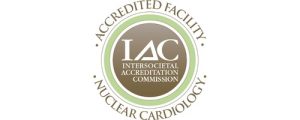
Travel Clinic
If you are traveling overseas for work, for a leisurely cruise, to visit family or for an outdoor adventure, PacMed’s physicians can keep you healthy and safe on your trip. The PacMed Travel Clinic offers comprehensive travel services for adults and children.
PacMed providers can offer you:
- Complete pre-travel exams
- Immunizations
- Malaria prevention tips and medications
- Country-specific travel advice
- Jet lag and sleeping adjustments
- Safe food and water suggestions
- Injury prevention and what to do when you’re away from home
- Medication suggestions
Our PacMed Beacon Hill, Canyon Park and Renton clinics offer all the services you will need for your travel exam:
- On-site pharmacy, lab and X-ray
- Free parking (valet available at Canyon Park)
- Early-morning, evening and weekend (Renton only) clinic hours
- Online appointments
To make an appointment at Beacon Hill, call 206.621.4504. Hours and driving directions for Beacon Hill.
To make an appointment at Canyon Park, call 425.412.7200. Hours and driving directions for Canyon Park.
To make an appointment at Renton, call 425.227.3132. Hours and driving directions for Renton.
Download a printable flyer:
Please note that the Travel Clinic charges patients directly for services. Some insurance providers will pay for travel vaccines and medications.
Cardiovascular Lab
Your Heart Health is Our Primary Concern
Every heart has a story to tell. Our cardiologists at Pacific Medical Centers will work with you every step of the way to prevent heart disease as well as develop a treatment plan to manage your ongoing healthcare needs.
Cardiovascular Laboratory services are available at several of our clinics. We offer patients noninvasive diagnostic ultrasound procedures that help diagnose various forms of heart and blood vessel, or vascular, disease.
So that patients may live their best lives, the PacMed Cardiovascular Laboratory is committed to excellence in screening, diagnosis and monitoring of cardiac and vascular disease. Our laboratory is accredited by the Intersocietal Accreditation Commission (IAC) in Echocardiography and Vascular Studies, and all of our sonographers are active registrants of the American Registry for Diagnostic Medical Sonography (ARDMS). By pursuing excellence, we ensure the highest standards of quality and commitment to superior clinical care for our communities.
Infusion Therapy
Infusion Suites Focused on Comfort
Infusion is nothing like it used to be. At our fully accredited infusion centers, we offer a wide range of outpatient infusion services. Our dedicated pharmacists and registered nurses (RNs) oversee the delivery of treatment. Our infusion centers offer a warm and bright environment with reclining chairs for your comfort. Friends and family are welcome to join you during treatment sessions.
You can download a printable flyer for our infusion center to help prepare you for your visit.
Infusion Center Locations
PacMed First Hill
- 1101 Madison, Ste 301
- Seattle, WA 98104
- 206.505.1300
- Hours: 8:00AM–4:30PM
- PacMed is on the third floor. You must check in on the third floor before going to the infusion suite. Please bring current insurance information.
PacMed Canyon Park
- 1909 214th Street SE, Ste 300
- Bothell, WA 98021
- 425.412.7200
- Hours: 8:00AM–4:30PM
- PacMed is on the third floor. You must check in on the third floor before going to the infusion suite. Please bring current insurance information.
Our infusion centers serve adult patients (18 and over).
Platelet-Rich Plasma Injections
What is platelet-rich plasma (PRP)?
PRP is plasma (the non- cellular fluid of blood) with a high concentration of platelets and low concentrations of red and white blood cells.
What are the potential benefits of a PRP injection?
In the literature, patients have shown significant improvements in pain and function after PRP treatment for conditions including osteoarthritis and degenerative tendons such as in chronic tennis elbow. Other common areas of injection include the Achilles tendon, rotator cuff, hamstring tendons, and elbow ligaments. Definitive research studies still need to be performed for these specific areas, but many sports medicine physicians are reporting successful outcomes after treating injuries to those areas with PRP.
How does PRP work?
Platelets are best known for their role with blood clotting. However, the alpha-granules of platelets contain large amounts of growth factors, which are proteins known to initiate and assist in the rebuilding and remodeling process of healing tissue. These growth factors include platelet-derived growth factor, vascular endothelial growth factor, and transforming growth factor. Placing a very high concentration of these growth factors near injured areas is thought to accelerate the body’s natural healing response. Additionally, PRP can be formulated to have an apparent anti-inflammatory effect when used in osteoarthritis.
PRP has been in clinical use since the late 1980s for dental, orthopedic, and plastic surgery procedures. Very recently, growing evidence has been published showing promise in treating osteoarthritis and tendon, ligament and muscle injuries.
To learn more, download our informational flyer.






 = achieved
= achieved
